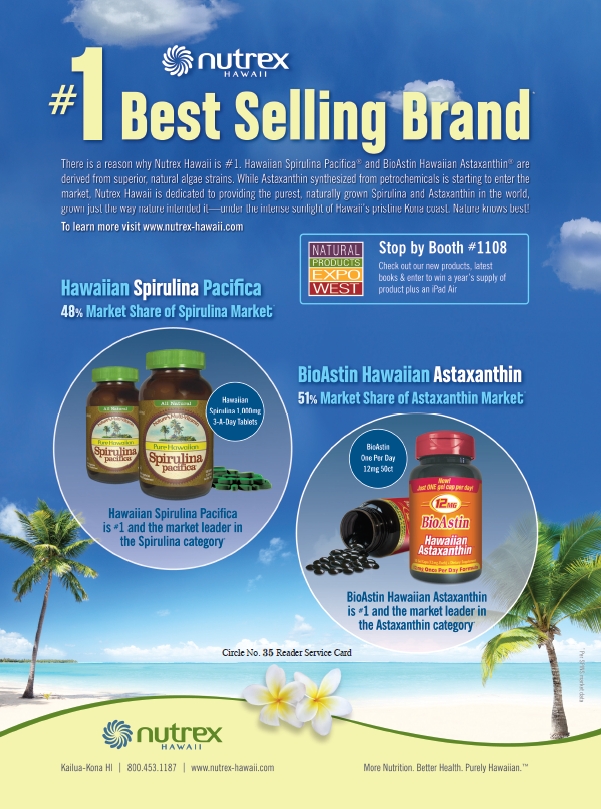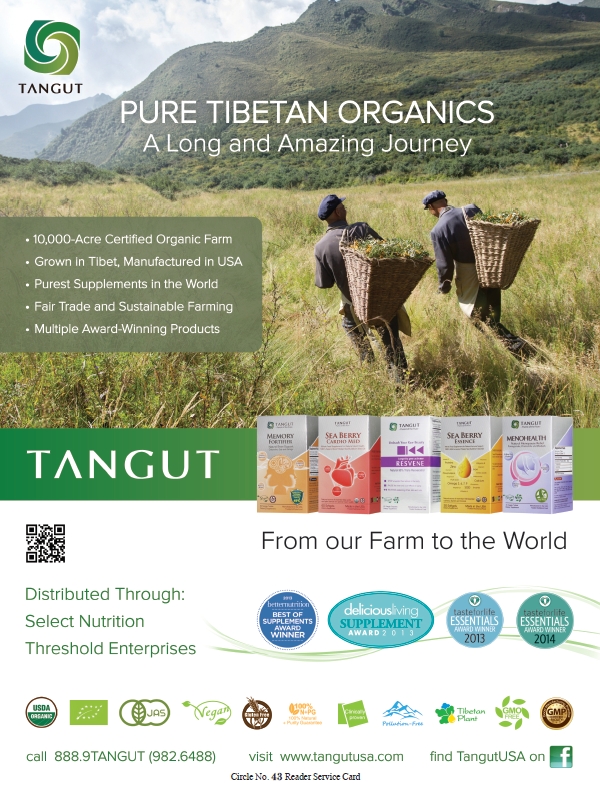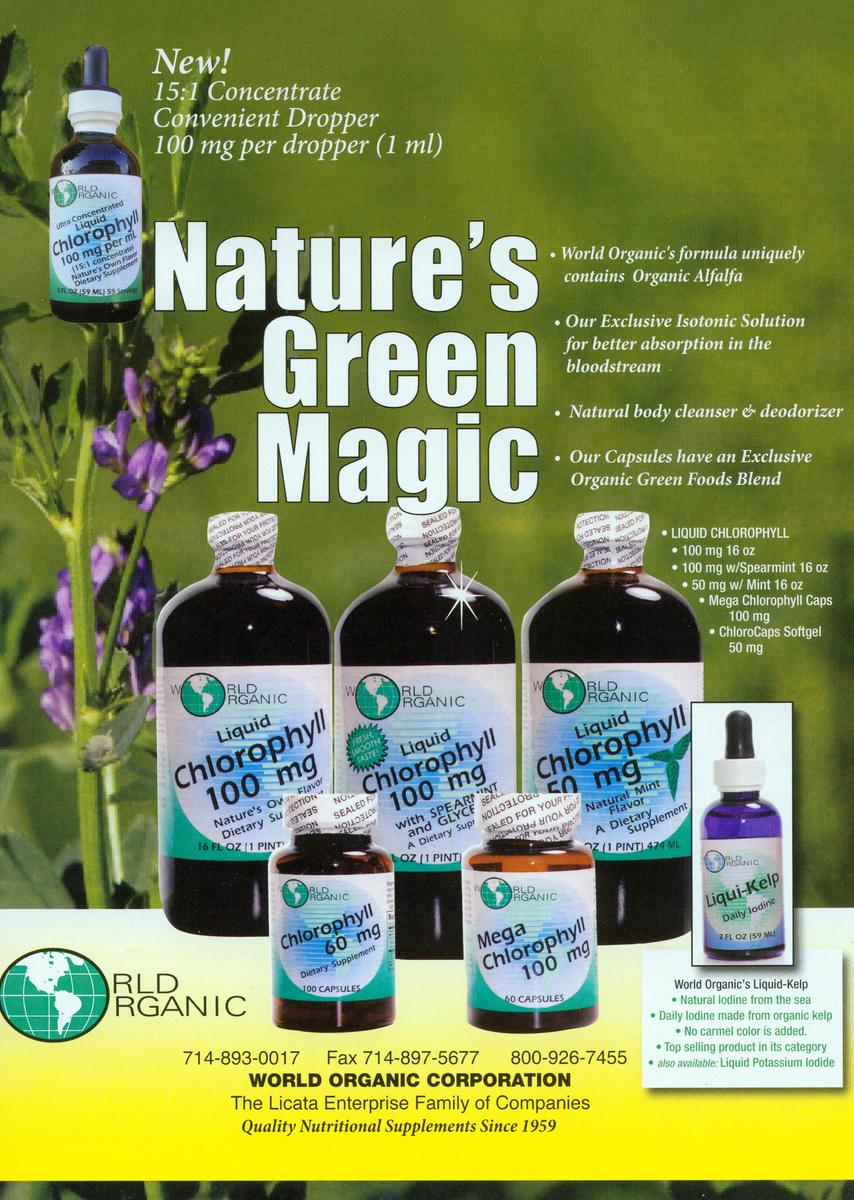Spirulina was originally envisioned as an incredibly nutritious, sustainable food source that could be grown locally to feed malnourished villages in developing countries. The superfood has all the right qualities: it grows in sunlight and water, flourishes in warm climates, provides a high-quality source of digestible protein (with all the essential amino acids) and is packed with vitamins, minerals, essential fatty acids, carotenoids, antioxidants and other phytonutrients that help support an amazing array of health benefits.
Early Spirulina advocates such as Dr. Ripley Fox hoped that Spirulina was the answer to wipe out malnutrition, but the economics of growing it in small, decentralized production sites never quite made sense.
Where Spirulina does make sense, however, is in improving the health of every person who eats it regardless of their economic situation or geography. There are far too many health benefits of Spirulina to cover them all in this article, but here are some of the most important ones.
Improve Your Immunity
There has been a great deal of medical research on Spirulina’s ability to enhance immunity. A promising study at the University of California (Davis) supplemented participants with three grams per day of Hawaiian Spirulina and found significant improvements in both immune system markers and blood iron levels. The researchers concluded that Spirulina can improve age-related loss of immunity and prevent anemia in senior citizens (1). (All participants were over the age of 50.)
Another positive study at the University of Mississippi compared a polysaccharide extract of Hawaiian Spirulina with other immune-stimulating compounds. It found that Spirulina polysaccharides are 100–1,000 times more active than other polysaccharide preparations that are currently being used for cancer immunotherapy (2).
Increase Your Energy and Endurance
For decades, fans of Spirulina have reported that it increases their energy levels and improves their endurance. This is sustained energy, too, not the kind of highs and lows you might get from slamming carbs or stimulants. Two recent human clinical trials have now validated the considerable amount of anecdotal evidence about Spirulina’s effects on endurance and energy.
In the first study, subjects supplementing Spirulina for only three weeks significantly increased their time to exhaustion on a treadmill (3).
 The second study went even further and showed even more benefits. This was a gold standard study—a randomized, double-blind, placebo-controlled crossover study. This study also used a treadmill to measure endurance and, for four weeks, gave the treatment group six grams of Spirulina each day; the researchers concluded that Spirulina users tired less quickly, burned more fats and had improved total antioxidant capacity (along with other improved markers of health) (4).
The second study went even further and showed even more benefits. This was a gold standard study—a randomized, double-blind, placebo-controlled crossover study. This study also used a treadmill to measure endurance and, for four weeks, gave the treatment group six grams of Spirulina each day; the researchers concluded that Spirulina users tired less quickly, burned more fats and had improved total antioxidant capacity (along with other improved markers of health) (4).
Get Rid of Toxic Elements in Your Body
Spirulina can get rid of toxic elements you don’t want in your body. It’s documented to help remove heavy metals and radioactive isotopes such as Cobalt-60 (5, 6) and it’s effective at combating many different viruses including influenza, herpes, measles, mumps and even HIV-1 (7).
Protect Vital Organs
Dozens and dozens of medical research studies show that Spirulina can protect some of our most vital organs including the heart and the brain (7). A well-known professor at the University of South Florida, Dr. Paula Bickford, has conducted a series of pre-clinical trials showing a variety of Spirulina’s potential benefits for brain health in areas such as Parkinson’s, ALS (Lou Gehrig’s disease) and even age-related neurological decline (8–10).
In conclusion, while Spirulina has not yet fulfilled  the dream of becoming a sustainable protein source to help feed the world, it has enjoyed widespread popularity as a superfood used to help prevent degenerative health conditions while supporting and enhancing optimum human health. Fortunately, Spirulina is available right now in both powder and tablet forms. WF
the dream of becoming a sustainable protein source to help feed the world, it has enjoyed widespread popularity as a superfood used to help prevent degenerative health conditions while supporting and enhancing optimum human health. Fortunately, Spirulina is available right now in both powder and tablet forms. WF
References
1. C. Selmi, et al., “The Effects of Spirulina on Anemia and Immune Function in Senior Citizens,” Cell Mol. Immunol. 8 (3), 248–254 (2011).
2. N. Pugh, et al., “Isolation of Three High Molecular Weight Polysaccharide Preparations with Potent Immunostimulatory Activity from Spirulina platensis, aphanizomenon flos-aquae and Chlorella pyrenoidosa,” Planta Med. 67 (8), 737–742 (2001).
3. H.K. Lu, et al., “Preventive Effects of Spirulina platensis on Skeletal Muscle Damage under Exercise-Induced Oxidative Stress,” Eur. J. Appl. Physiol. 98 (2), 220–226 (2006).
4. M. Kalafati, et al., “Ergogenic and Antioxidant Effects of Spirulina Supplementation in Humans,” Med. Sci. Sports Exerc. 42 (1), 142–151 (2010).
5. H.Q. Zhang, et al., “Chemo- and Radio-Protective Effects of Polysaccharide of Spirulina Platensis on Hemopoietic System of Mice and Dogs,” Acta Pharmacol. Sin. 22 (12), 1121–1124 (2001).
6. E. Hernandez and E.J. Olguin, “Biosorption of Heavy Metals Influenced by the Chemical Composition of Spirlina sp. (Arthrospira) Biomass,” Envir. Technol. 23 (12), 1369–1377 (2002).
7. B. Capelli and G.R. Cysewski, “Potential Health Benefits of Spirulina Microalgae,” Nutrafoods 9(2),19–26 (2010).
8. M.M. Pabon, et al.,” A Spirulina-Enhanced Diet Provides Neuroprotection in an α-Synuclein Model of Parkinson's Disease,” PLoS One 7(9), e45256 (2012).
9. S. Garbuzova-Davis and P.C. Bickford, “Short Communication: Neuroprotective Effect of Spirulina in a Mouse Model of ALS,” The Open Tissue Engineering and Regenerative Medicine Journal, 3, 36–41 (2010).
10. C. Gemma, et al., “Diets Enriched in Foods with High Antioxidant Activity Reverse Age-Induced Decreases In Cerebellar Beta-Adrenergic Function and Increases in Proinflammatory Cytokines,” J. Neurosci. 22 (14), 6114–6120 (2002).
Mike Adams, known as the “Health Ranger,” is a food activist-turned-scientist who founded the world’s most popular natural health news website, www.NaturalNews.com. Today, his Web site is read by over seven million readers each month.
Published in WholeFoods Magazine, February 2014









